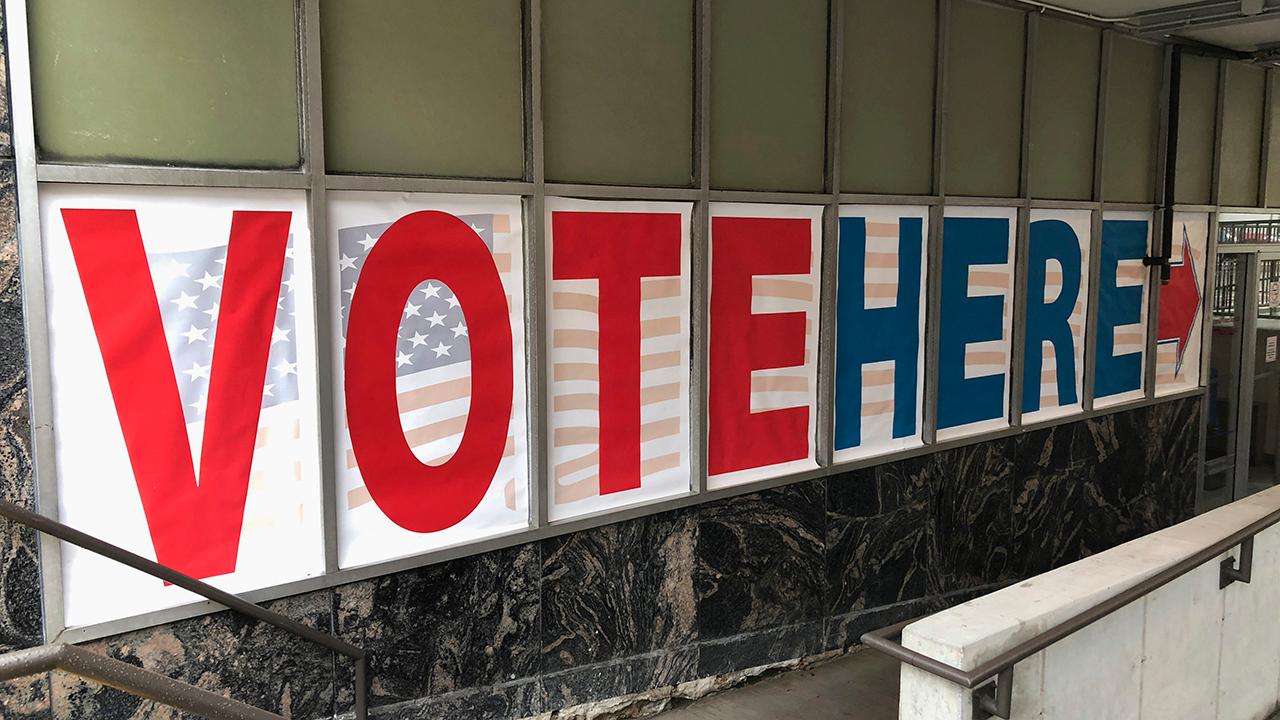Midterms and the economic issues at stake
As Americans head to the polls on Tuesday to cast their ballots in what are shaping up to be some hotly-contested midterm races, a number of business issues are at the forefront of voters’ minds.
While Democrats and Republicans spar over whose policies spurred the economic recovery – with unemployment at 3.7 percent, the lowest since 1969, and third quarter GDP growth of 3.5 percent – Americans are citing a host of other business topics, like tax policy and health care, as priorities.
Here’s a look at some of the top business issues voters are considering heading into Tuesday:
Taxes
The president signed a sweeping overhaul of the U.S. tax code at the end of last year – which has been heavily touted by the administration, while Democrats have framed it as a tax cut for businesses and the wealthy.
Trump has acknowledged that the midterms are a sort of referendum on his presidency, of which the Tax Cuts and Jobs Act is considered a primary achievement, saying “in a certain way, I’m on the ballot” to a Mississippi crowd.
Last month, Democratic Sen. Kamala Harris from California unveiled a proposal that would provide families with a refundable tax credit for as much as $6,000 per year, or $500 per month, to live on. She proposed repealing parts of the Trump administration’s tax law in order to finance the payouts.
Meanwhile, Trump has said he wants to implement another 10 percent tax cut for middle class Americans after the elections. He has credited his tax reform law with helping ignite economic growth and a hiring boom.
Health care
More than seventy percent of U.S. voters said health care was “very important” when deciding which candidates to cast their vote for this midterm cycle, according to a poll from the Kaiser Family Foundation.
While President Trump ran on a campaign to repeal and replace the Affordable Care Act (ACA), Republicans have not been able to fulfill that promise to-date. The administration has chipped away at some of the ACA’s rules and regulations, while expanding consumers’ options to less expensive coverage, but concerns over prices for care and prescription drugs persist.
Democrats have positioned themselves as the party that favors covering individuals with pre-existing conditions – a stipulation of the Affordable Care Act. Nearly half of all Democratic ads that ran between Jan. 1 to Sept. 30 mentioned health care, compared to 21 percent of Republican ads.
The Medicaid expansion is also an issue voters are considering – with more Democratic candidates pushing for the expansion as Republican candidates are more likely to favor keeping the program as is. The ACA expands coverage for low-income individuals to 138 percent of the federal poverty level.
Medicaid coverage is an issue on the ballot in Idaho, Nebraska and Utah.
Jobs
Twenty-three percent of Republican voters, 21 percent of Independent voters and 17 percent of Democratic voters cited jobs and the economy as the “most important” issue, according to the Kaiser Family Foundation.
While candidates aren’t as focused on economic growth, President Trump has been touting his administration’s policies while stumping for Republican candidates.
After the Bureau of Labor Statistics released its October jobs report, which showed that the economy added 250,000 jobs and the unemployment rate remained at 3.7 percent, the president tweeted that Americans should “keep it going, vote Republican.”
Meanwhile, President Obama, who has been campaigning alongside Democratic candidates, refuted the notion that Trump is responsible for the U.S. economic recovery.
“By the time I left office, household income was near its all-time high, and the uninsured rate had hit an all-time low and wages were rising,” he said in September. “I mention all this so when you hear how great the economy is doing right now, let’s just remember when this recovery started.”
Other
If Democrats gain control of one or both houses of Congress on Tuesday, funding for the U.S. military could be on the chopping block.
President Trump has made a concerted effort to ramp up military funding: The 2018 budget allocated nearly $700 billion for defense and a $716 billion defense authorization budget has been approved for fiscal 2019.
But more liberal-leaning Democratic congressional members belonging to the Congressional Progressive Caucus have put out a blueprint calling for a reduction in “baseline military spending.” The document criticizes the Trump administration for “bloating the military budget beyond belief.”
Rep. Adam Smith, D- Calif, who would likely become chair of the House Armed Services Committee if Democrats win the chamber, has indicated he would cut current levels of defense spending. Meanwhile, Senate Armed Services Committee ranking member Sen. Jack Reed, D-R.I., has re-upped calls for boosting non-military defense spending in step with each defense dollar spent.




















